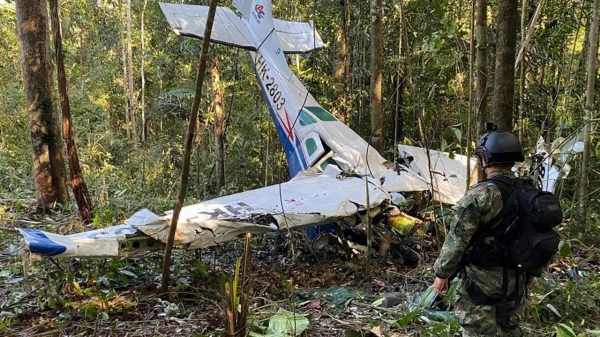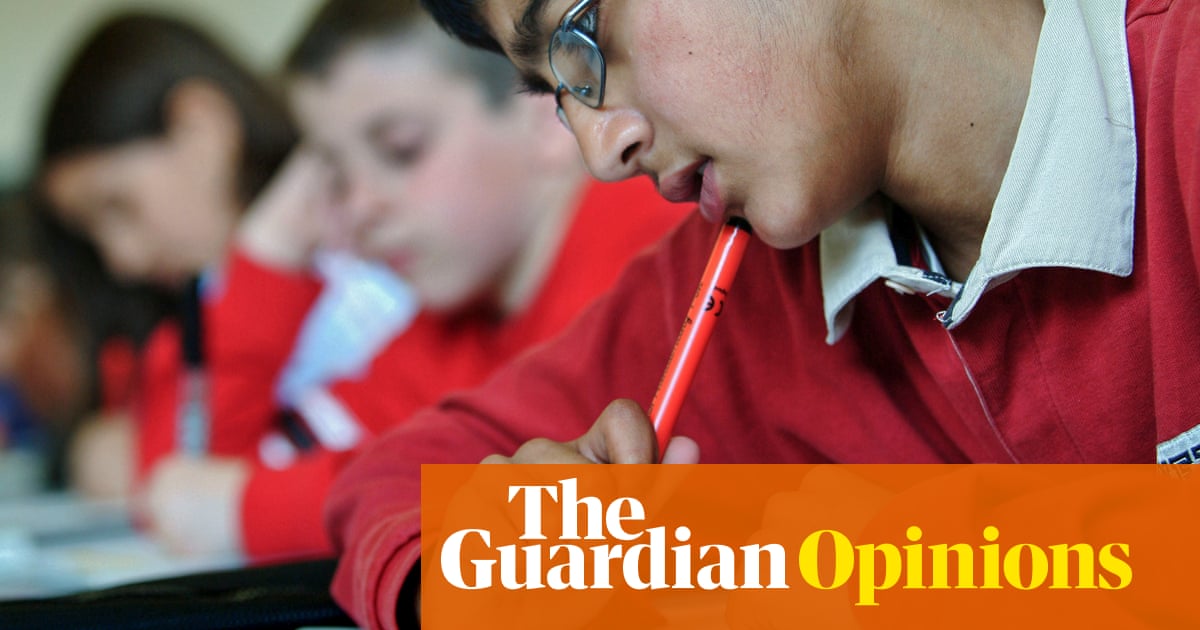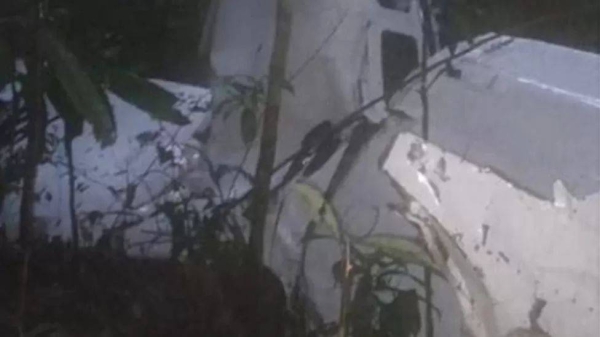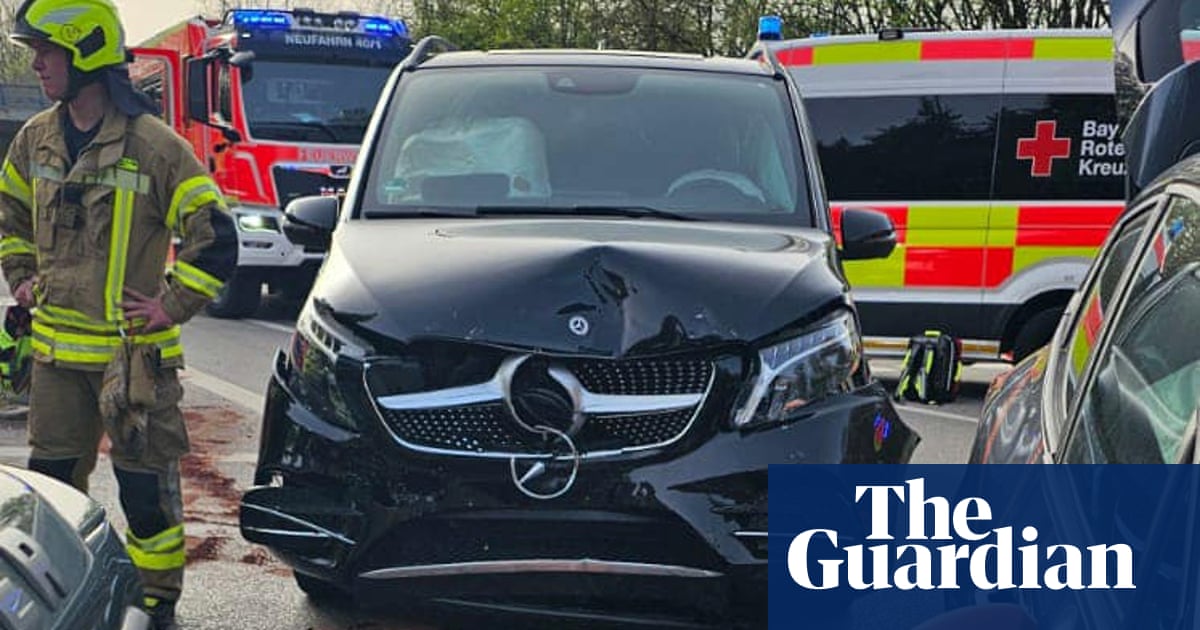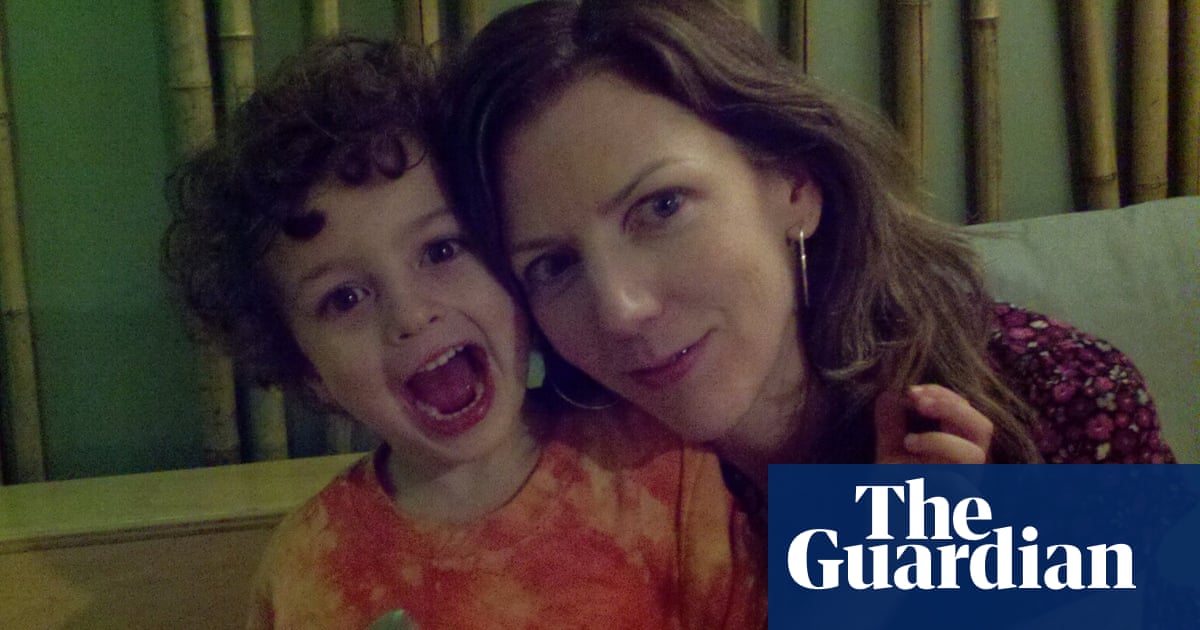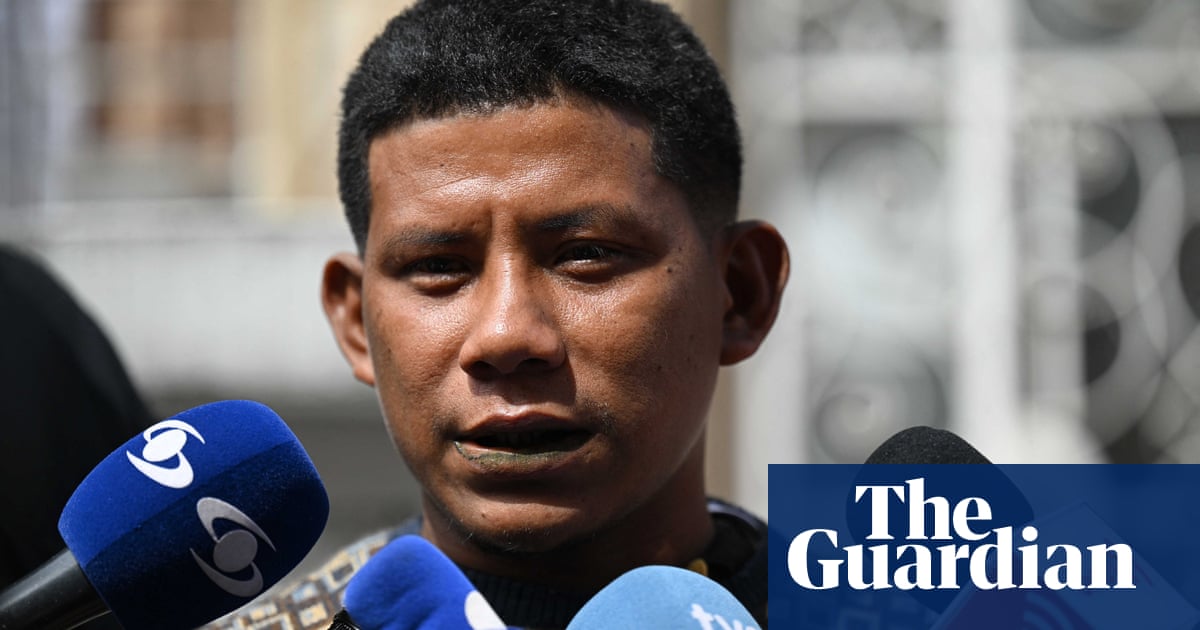
The mother of the four young Colombian siblings who managed to survive for almost six weeks in the Amazon jungle clung to life for four days after their plane crashed before telling her children to leave her in the hope of improving their chances of being rescued.
Details of the woman’s final days came as further information emerged about the children’s astonishing feat of endurance.
The father of two of the children, Manuel Ranoque, told reporters on Sunday that his wife, Magdalena Mucutuy, had survived the crash but perished four days later.
“My daughter has told me that their mother was alive for four days,” said Ranoque.
“Before she died, she said to them: ‘Maybe you should go. You guys are going to see the kind of man your dad is, and he’s going to show you the same kind of great love that I have shown you.’”
The children – aged 13, nine, four and 11 months – were travelling with their mother from the Amazonian village of Araracuara to San José del Guaviare when their Cessna plane crashed after the pilot reported engine failure in the early hours of 1 May.
A military sniffer dog found the siblings, who are members of the Huitoto Indigenous community, on Friday after they had spent more than a month in an area where snakes, mosquitoes and other animals abound.
The children’s great-uncle, Fidencio Valencia, said the siblings had survived by eating fariña, or cassava flour, and by using their knowledge of the rainforest’s fruits.
“When the plane crashed, they took fariña [from the wreckage], and with that they survived,” he told reporters outside the hospital, where they are expected to remain for a minimum of two weeks.
“After the fariña ran out, they began to eat seeds,” Valencia added. The children appear to owe their lives to the eldest sibling, Lesly, who kept them safe and nourished by using the knowledge of the rainforest her mother had passed on to her.
The timing of their ordeal was also in the children’s favour. Astrid Cáceres, the head of the Colombian Institute of Family Welfare, said the youngsters had been able to eat fruit because “the jungle was in harvest”.
“They will tell their stories and you will hear them,” said Ranoque, after visiting the children at Bogota’s military hospital.
Valencia, who also visited the children in the Bogotá hospital where they are recuperating, said they were “shattered but in good hands and it’s great they’re alive”.
He added: “We were in the darkness, but now dawn has broken and I have seen the light.”
Damaris Mucutuy, an aunt of the children, told a radio station that “the children are fine” despite being dehydrated and having insect bites. She said they had also been offered mental health support.
A search team found the plane on 16 May in a thick patch of the rainforest and recovered the bodies of the three adults on board but the children were nowhere to be found.
Sensing they could be alive, Colombia’s army stepped up the hunt and flew 150 soldiers with dogs into the area, where mist and thick foliage greatly limited visibility. Dozens of Indigenous volunteers also joined the search.
Soldiers in helicopters dropped boxes of food into the jungle, hoping that it would help sustain the children. Planes flying over the area fired flares to help search crews on the ground at night, and rescuers used speakers that blasted a message recorded by the siblings’ grandmother telling them to stay in one place.
As the search progressed, soldiers found small clues that led them to believe the children were still alive, including footprints, a baby bottle, nappies and pieces of fruit that looked as if humans had taken bites out of them.
Gen Pedro Sánchez, who was in charge of the rescue effort, said the children were found 5km (3 miles) away from the crash site in a small forest clearing. He said rescue teams had passed within 20 to 50 metres (66 to 165ft) of where the children were found on a couple of occasions but had missed them.
“The minor children were already very weak,” Sánchez said. “They were only strong enough to breathe or reach a small fruit to feed themselves or drink a drop of water in the jungle,” he said.
Some confusion remains as to why the children were not found earlier, given that search teams had passed so close to them. Their great-uncle said that fear had probably led them to hide from their rescuers.
“They were afraid out there, with the dogs barking,” said Valencia. “They hid among the trees … they ran.”
The children may have been frightened of the uniformed search party because their father had previously been threatened by members of a dissident unit of the demobilised Colombian rebel group the Revolutionary Armed Forces of Colombia.
According to Alicia Méndez, a journalist with El Tiempo, the children had also been scared when they heard their grandmother’s voice booming out of the loudspeakers.
“They heard the message and they were afraid, they hid in the bush so as not to be found,” said Méndez. “Every time [the search team] was close, they hid. We don’t know what was going through their little heads.”
It has also emerged that a military rescue dog called Wilson played a key role in the discovery of the children. The siblings told officials that they had spent time with Wilson, a Belgian shepherd, but that the dog had later gone missing.
As well as discovering the baby’s bottle, Wilson is thought to have left tracks that led the search team to the children.
Cáceres confirmed that Lesly had said they were accompanied by “a dog who was lost, that didn’t know where to go and which accompanied us for a while”. It is believed, though not confirmed, that the dog was Wilson.
The Colombian military said the dog, who had received a year’s rescue training, could have become disoriented by the heavy rains and poor visibility and that his behaviour may have been affected by contact with wild animals such as jaguars and anaconda.
Soldiers had been close to rescuing Wilson on two occasions only for the dog to run away from them. The army’s official Twitter account confirmed that the search continues: “We are united to return our canine commando Wilson from the jungle. The operation isn’t over until we find him!”
Colombia’s president, Gustavo Petro, who joyfully announced the discovery of the children on Friday, met them in hospital on Saturday.
“The jungle saved them,” said Petro. “They are children of the jungle, and now they are also children of Colombia.”
The Colombian singer Shakira also celebrated the children’s rescue, tweeting: “The suffering of Lesly, Soleiny, Tien and Cristin and the miracle of their lives have shaken us all and have given us the greatest example of unity and resilience.”




